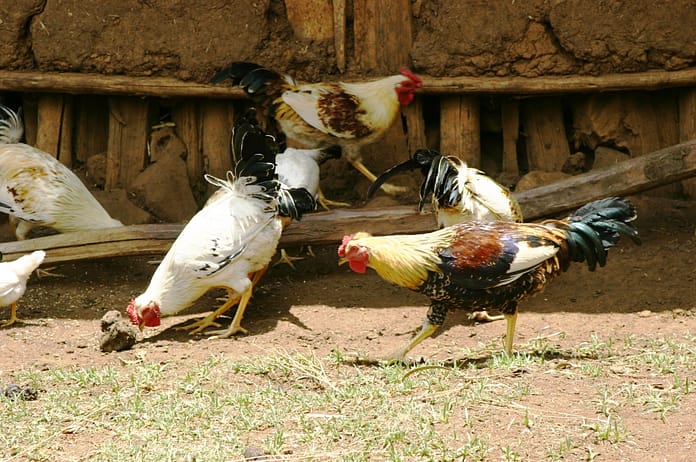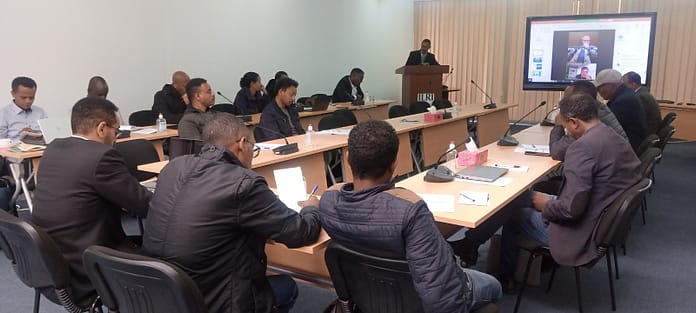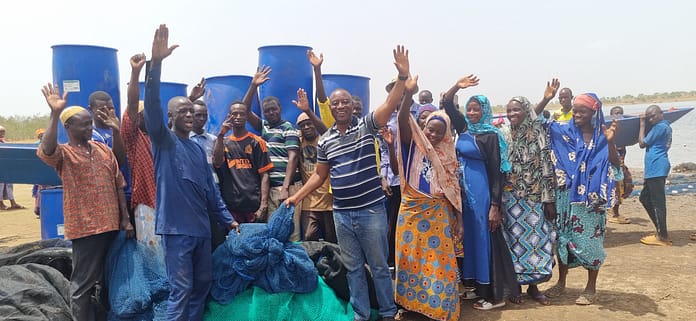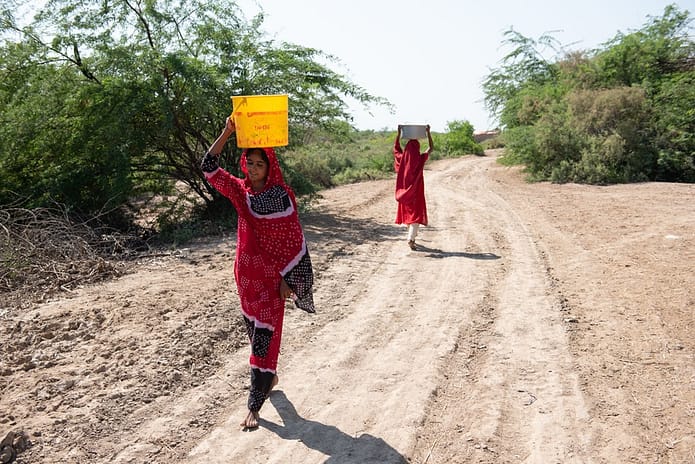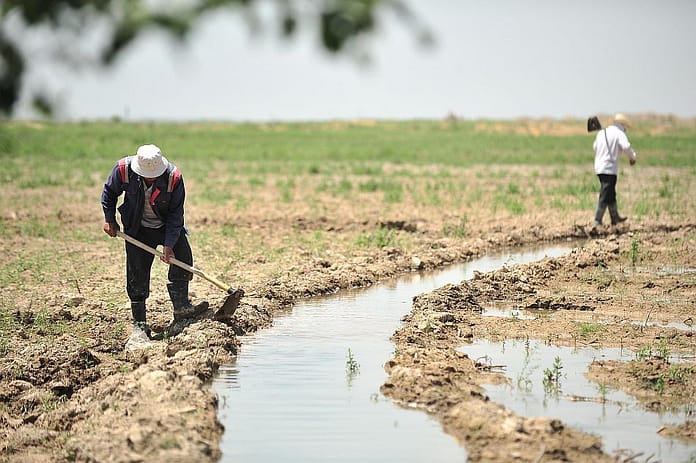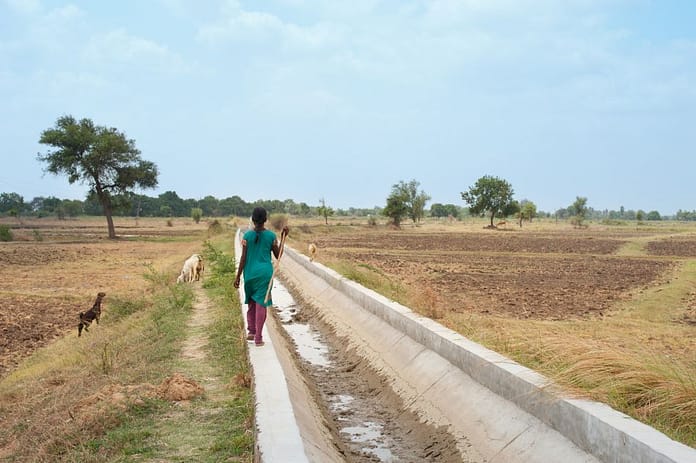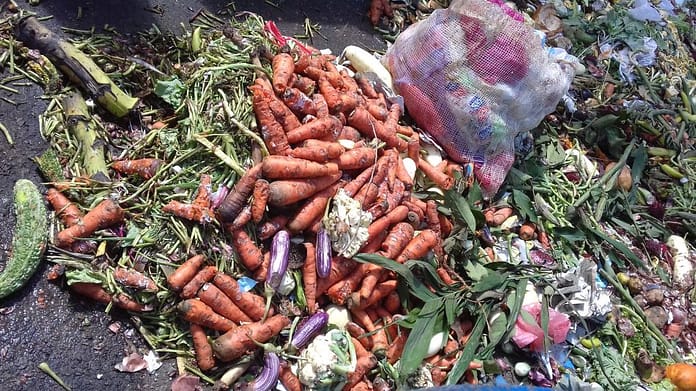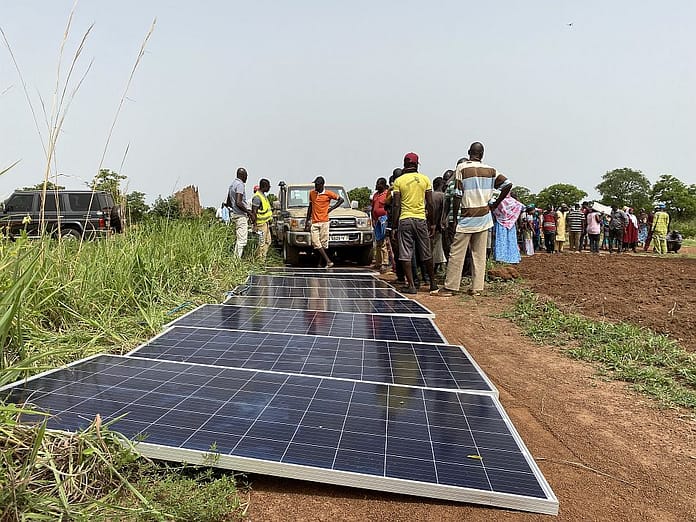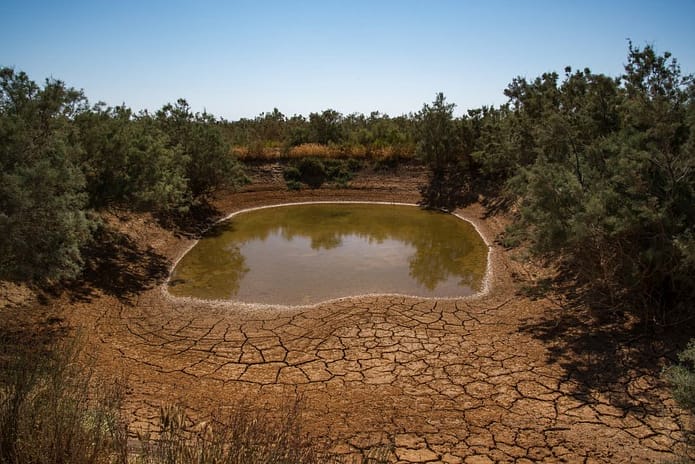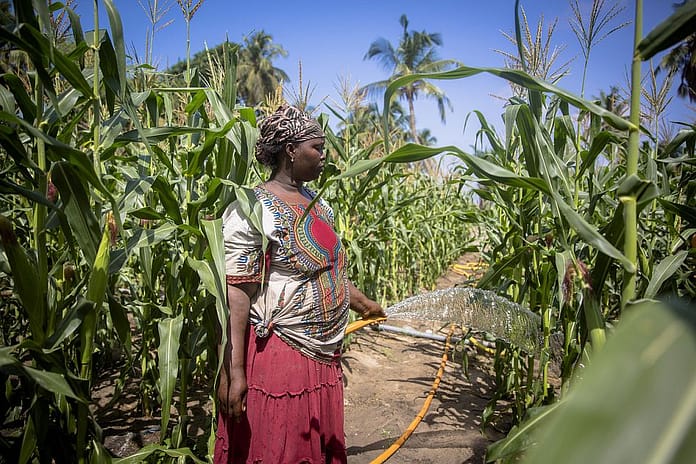By Thai Thi Minh, Senior Researcher – Innovation Scaling, IWMI
Agricultural productivity has increased and farmers in Ghana and Ethiopia are more resilient to weather-related shocks. This is thanks to an IWMI-led project that has identified a bundle of solutions to address the barriers preventing many smallholder farmers from investing in and benefiting from irrigation. These solutions have helped to strengthen demand and supply linkages along irrigated agricultural value chains, increasing farmers’ access to solar irrigation technologies and services, and ultimately boosting yields.
The results of these efforts were recently published on MARLO, the CGIAR’s learning and outcomes platform, and in the CGIAR 2021 annual report.

Farmer-led irrigation development
Farmer-led irrigation development (FLID) is a process whereby farmers drive investment in and improvement of irrigated agriculture. It holds high potential to increase incomes for farmers and other actors in irrigated agricultural value chains while supporting climate change adaptation. However, scaling up FLID is often hampered by a lack of affordable credit, energy, and efficient input and output markets.
Supported by the Feed the Future Innovation Lab for Small Scale Irrigation (ILSSI) and Africa Research in Sustainable Intensification for the Next Generation (Africa RISING) program, IWMI is leading a project to scale up FLID in ways that are equitable, economically viable, and environmentally sustainable. A key project objective is engaging private sector actors, who play a central role in the supply of solar irrigation technologies and services such as information, financing, and after-sales support. In 2021, the first scaling partnerships were established in Ghana and Ethiopia to accelerate progress towards this objective.
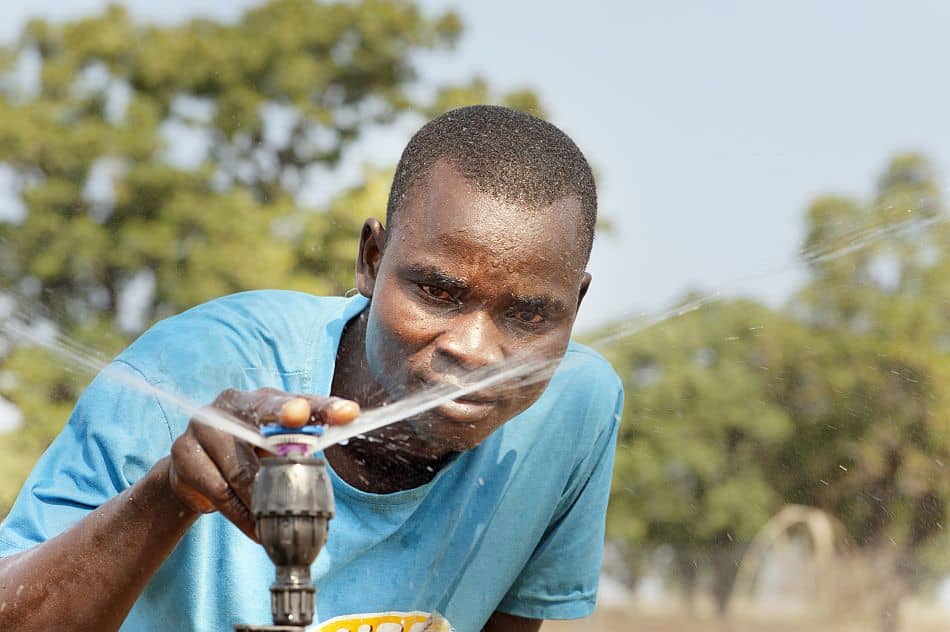
In Ghana, IWMI partners with Pumptech, a solar pump distributor that combines pumps with pay-as-you-own financing. This model helps to address the challenge of high initial investment costs by allowing farmers to use the pump while making regular payments until the total cost of the equipment is paid off.
In Ghana’s Upper East and Upper West regions, IWMI and Pumptech co-organized a series of demand-supply linkage workshops in 2021. The six events brought together 457 value chain actors to discuss ways to establish strong distribution networks for Pumptech, using workshop participants as sales and service agents. Six such networks have since been set up. During the workshops, participants also identified 308 individual farmers and 15 farmers’ groups as potential customers for Pumptech’s PS2 pumps. These are compact and relatively affordable off-grid pumps that are specifically aimed at smallholders.
To handle the increased demand, Pumptech opened a new branch office in the Upper East Region in mid-2021 with the Ministry of Food and Agriculture. In addition, Pumptech’s pay-as-you-own financing model attracted GHS 628,966 (USD 102,750) in funding from the Deutsche Gesellschaft für Internationale Zusammenarbeit (GIZ) to support the further development of Ghana’s solar irrigation market. Overall, IWMI support helped Pumptech to increase pump sales by more than 80% in 2021, compared to 2020.
In early 2022, IWMI and Pumptech carried out market segmentation in the Northern, Northeast and Savannah regions, involving 395 farmers. Identifying and segmenting customer groups helps companies target their products and services to the right people, in the right way. This can open up opportunities for growth, inform product development, and improve customer retention. A new series of demand-supply linkage workshops will be organized in these regions in the coming months.
Scaling up irrigation in Ethiopia
Scaling partnerships were also established with several companies in Ethiopia. One of these is Rensys, another pump distributor. In the past year, Rensys has expanded to four new regions. In addition, it is cooperating with a mobile payment provider, pump manufacturer, and cold storage supplier to make irrigation and storage technologies more affordable and facilitate farmers’ access to markets. Ongoing multi-stakeholder dialogues (MSDs), which include the Ethiopian government’s Agricultural Water Management Task Force and the World Bank’s 2030 Water Research Group, are amplifying IWMI’s scaling efforts by engaging a broader set of actors up to the national level.
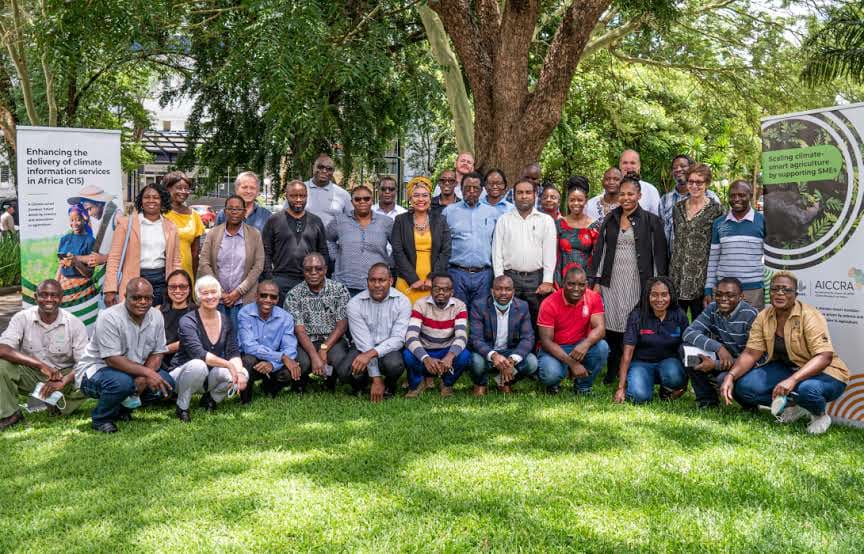
Expansion to Mali and Zambia
The lessons learned in Ghana and Ethiopia are now being applied in Mali, where IWMI has carried out market research and is working with two private sector scaling partners. The first MSD was held here in May 2021, and the first demand-supply linkage workshop will be organized shortly.
Work has also started in Zambia. Through the World Bank-backed Accelerating Impacts of CGIAR Climate Research for Africa (AICCRA) program, IWMI designed and implemented an accelerator grant. Twelve small and medium agribusinesses were announced as winners of the grant in February 2022 and will join the program as accelerator partners.
These partners will work with CGIAR scientists, including from IWMI, to rapidly scale up actionable climate information services (CIS) and climate-smart agriculture (CSA) innovation bundles that will achieve water and food security in an inclusive manner. The goal is to reach 300,000 farmers by the end of 2023, benefiting not only these farmers and their communities but also demonstrating the value of scaling partnerships for agricultural resilience more broadly.



